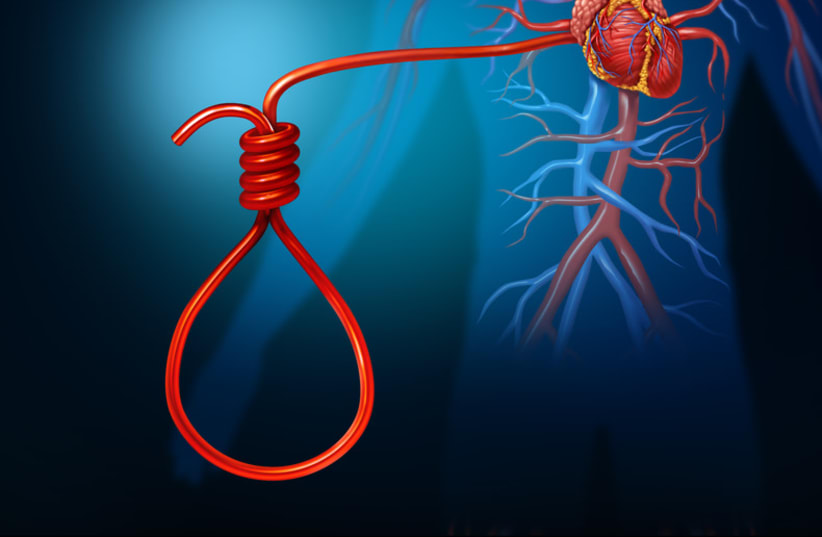More than 30,000 Israelis suffer from atrial fibrillation without knowing it. This is an arrhythmia, a fluctuation in the normal heart rate that is called a "ticking time bomb,” and it significantly increases the risk of having a stroke. A new questionnaire from the Ne'eman Association checks if you’re at risk of having a stroke.
Approximately 90,000 Israelis suffer from atrial fibrillation, but 30,000 people don't know that they have this condition.
This means that they walk around with a ticking time bomb in their body that isn’t noticeable and can cause a stroke without any early warning signs. Now a new pilot from the Ne'eman Association seeks to diagnose these people and save their lives with a simple digital questionnaire for people over age 65.
"Every year about 20,000 people suffer a stroke that can lead to disability and even death,” said Prof. Natan Bornstein, director of the Neurological Institute at Shaare Zedek Medical Center and chairman of the Israeli Stroke Society and the Ne'eman Association. “Of these strokes, only about 20% are caused by atrial fibrillation and occur in patients with no early symptoms, so in other words many of these cases were diagnosable and preventable.”
What is atrial fibrillation?
Bornstein explained that atrial fibrillation is a heart rhythm disorder characterized by rapid and irregular contraction of the heart. Irregular heartbeat can cause blood to congeal in the heart and clot. The danger is that these blood clots will leave the heart and reach blood vessels in the brain. As a result, blood and oxygen supply to the brain may be blocked and cause a stroke.This is why atrial fibrillation is one of the major risk factors for stroke.
The professor added that studies show that people over age 65 who have been diagnosed with atrial fibrillation are five times more likely to have a stroke as compared to the general healthy population.
“Early detection of atrial fibrillation and appropriate drug treatment with anticoagulants can prevent a stroke and therefore it’s crucial to diagnose atrial fibrillation,” he said.
The incidence of atrial fibrillation increases with age, and if people have diseases such as diabetes, hypertension, progressive heart failure, vascular disease, obstructive pulmonary disease and overactive thyroid gland, these increase the risk for atrial fibrillation in this age group.
As mentioned, the Ne'eman Association, which works to reduce stroke and provides rehabilitative services, is now leading a unique pilot that will identify people at risk for atrial fibrillation by using a digital questionnaire and advanced heart rate monitoring technology, in order to save their lives.
The pilot calls on people aged 65 and over to answer a digital questionnaire, which examines their level of risk for latent atrial fibrillation. Participants diagnosed at high risk using the questionnaire will receive at home, for free, an advanced heart rate monitoring device (called a Holter), which is connected 24/7 to a monitoring center in order to find a fibrillation.
As part of the pilot, those who are at risk will receive the world's smallest miniature monitoring device called MonitorNano, which runs an automated algorithm for detecting arrhythmias, which is pre-programmed to detect arrhythmias. The patient has nothing to do but carry it on his body. It’s the smallest wearable monitoring device in the world, only 12 mm thick and weighs only 18 grams.
The data received from the monitor is transmitted to the center through the management application installed on a cell phone and analyzed by medical staff.
"There is no doubt that if it’s possible to prevent a stroke, of course this is the preferred option," concluded Pnina Rosenzweig, CEO of the Ne'eman Association. "Early testing to detect those at risk can save lives and this is a way to do so with a simple and free answer. It’s possible to get a professional and quality diagnosis of a significant risk factor and prevent a stroke."
